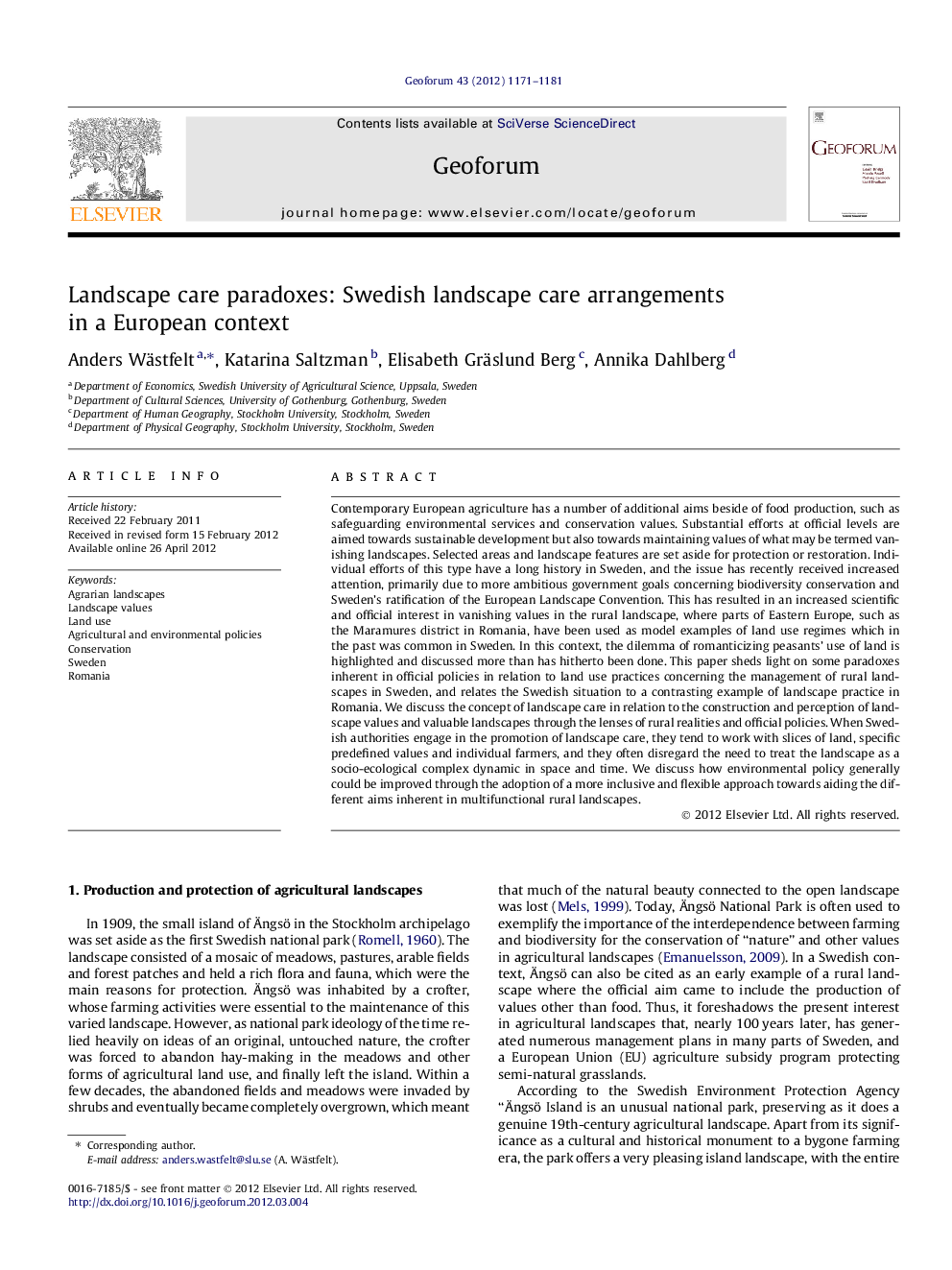| Article ID | Journal | Published Year | Pages | File Type |
|---|---|---|---|---|
| 5074315 | Geoforum | 2012 | 11 Pages |
Contemporary European agriculture has a number of additional aims beside of food production, such as safeguarding environmental services and conservation values. Substantial efforts at official levels are aimed towards sustainable development but also towards maintaining values of what may be termed vanishing landscapes. Selected areas and landscape features are set aside for protection or restoration. Individual efforts of this type have a long history in Sweden, and the issue has recently received increased attention, primarily due to more ambitious government goals concerning biodiversity conservation and Sweden's ratification of the European Landscape Convention. This has resulted in an increased scientific and official interest in vanishing values in the rural landscape, where parts of Eastern Europe, such as the Maramures district in Romania, have been used as model examples of land use regimes which in the past was common in Sweden. In this context, the dilemma of romanticizing peasants' use of land is highlighted and discussed more than has hitherto been done. This paper sheds light on some paradoxes inherent in official policies in relation to land use practices concerning the management of rural landscapes in Sweden, and relates the Swedish situation to a contrasting example of landscape practice in Romania. We discuss the concept of landscape care in relation to the construction and perception of landscape values and valuable landscapes through the lenses of rural realities and official policies. When Swedish authorities engage in the promotion of landscape care, they tend to work with slices of land, specific predefined values and individual farmers, and they often disregard the need to treat the landscape as a socio-ecological complex dynamic in space and time. We discuss how environmental policy generally could be improved through the adoption of a more inclusive and flexible approach towards aiding the different aims inherent in multifunctional rural landscapes.
⺠We discuss paradoxes within landscape care in Sweden and EU. ⺠The EU system of environmental subsidies is central and is based on objectified landscape values. ⺠Paradoxes occur in interaction of agricultural policy, environmental management and landscape care. ⺠Landscape care aims at controlling future, but looks backward. ⺠Should move toward integrating landscape values in processes in ongoing agricultural practices.
